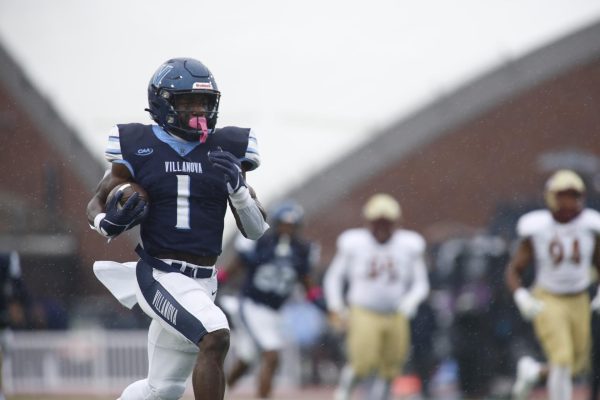MTV no longer represents young fans, new bands
April 27, 2005
The music blares from your iPod. The song isn’t so catchy, it’s not really danceable and your parents think you’re crazy for listening to something that sounds like pots clanging together with someone trying to scream over them. They exclaim, “Why can’t you just listen to normal music, like what’s on the radio? “
Sure, it might not be what your parents are listening to on the radio, but for the year 2005 this is normal music for Generation Y and even Z. This is not your parents’ mainstream pop music.
The current trend in music is that there is no trend. You hear this great chorus in a commercial or on a friend’s mix CD and bam. The next thing you know you’re searching for that song.
The job of music provider has gone from MTV to the internet in the blink of an eye, and “popular” music is no longer being force-fed to today’s youth. The days of *N Sync and Britney Spears are over.
In the 1980s MTV made music a permanent fixture in teenagers’ lives. Now MTV has strayed from introducing music to forming celebrities. Teens see this and have begun to look for music elsewhere.
Aware Records began in 1993 with the “intention to find the best unsigned bands in the country and increase their national exposure through a compilation CD.” Since then they have signed with Columbia Records to help then-unknown acts as John Mayer, Five For Fighting and Train gain the notoriety they deserve.
What has surfaced is a revolutionary grassroots music movement. The bands start with a small following and if they are any good they get recognized.
I take a look through my 17-year-old brother’s CD collection; some names I recognize, while others sound like an infomercial product: Blink 182, AFI, Piebald, Armor For Sleep.
One thing is for sure: it won’t be long before the music industry grabs hold of this underground movement and makes it their own.
In New York, mainstream radio has been catching on to this trend. Top 40 radio station Z100 found the local Long Island band Last Week and took them under its wing.
It all began with a nationwide talent contest where morning show host Elvis Duran first heard Last Week and began to play their unsigned single on the No. 1 morning show in the tri-state area.
“It’s a significant step in the way bands market to listeners, so we can be one of the first to do it,” said Tom Poleman, program director for Z100.
Still, certain music labels have been tirelessly working to maintain the organic appeal of the music.
Aware Records is also notorious for its “aware rep program” – volunteer representatives around the globe willing to try out unreleased CDs from unknown artists in order to spread the word.
“They send the music. If we like it, we share it with our friends,” Jonathan Zipper, a New York University student and Aware rep, states matter-of-factly. “Its like a family tree of music sharing, probably one of the best ways to get your music heard if you’re an unknown artist.”
The trend began in Generation Y and continues through Generation Z. Young children are now being influenced by what their friends and siblings are listening to, and even finding ways to get music on the internet.
When asked how she learns about new music, 10-year-old Alexandra Gonzalez responds “Nickelodeon has these things where they show you music videos. And sometimes the internet too.”
Her favorite band? “Charlotte’s Web.” She then takes a moment to think about her statement and exclaims, “Wait, is that the band? Oh yeah, it’s Good Charlotte.”










